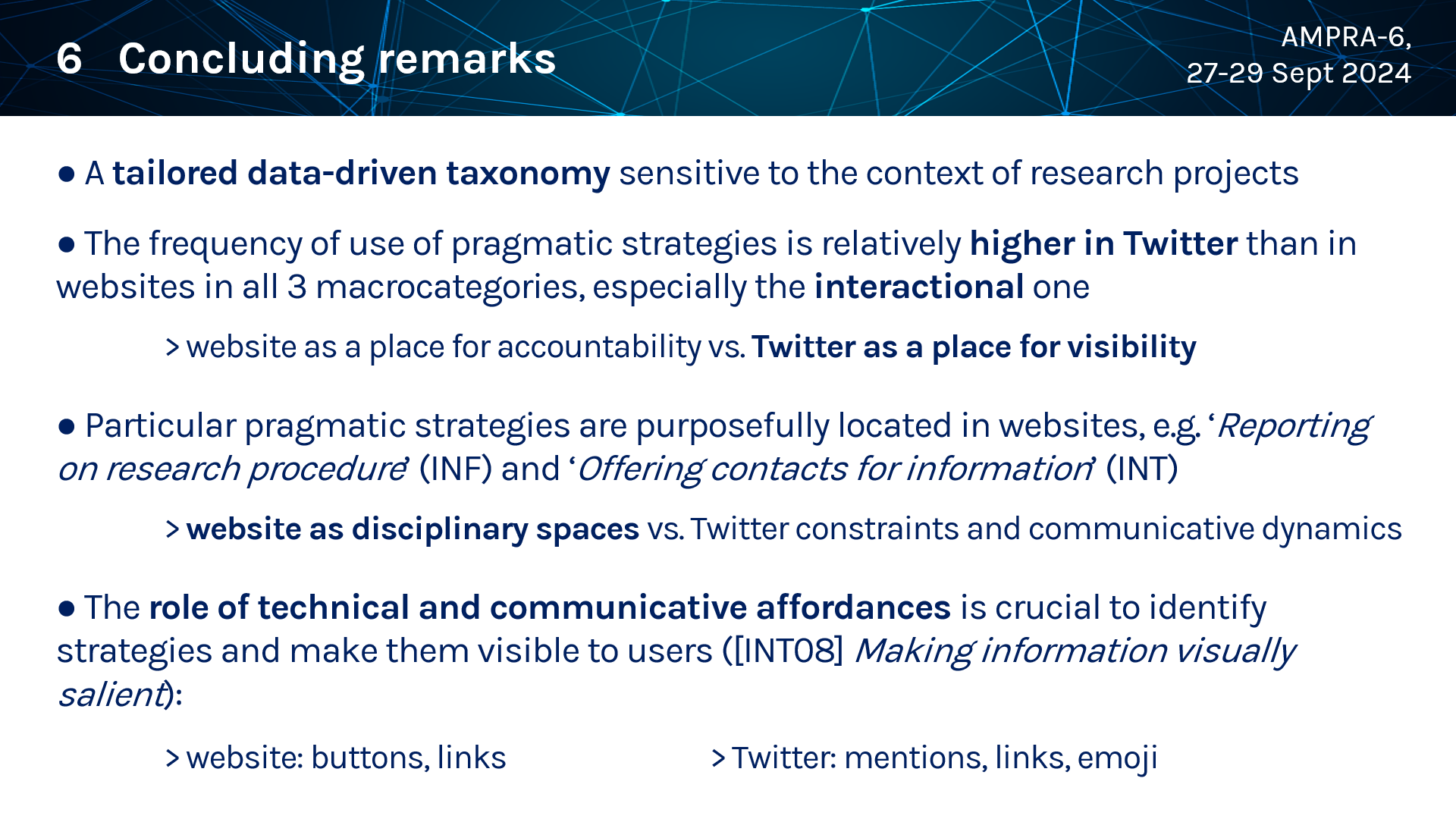AMPRA-6: Daniel Pascual analyses pragmatic strategies in Horizon2020 project websites and Twitter accounts

Our colleague Dr. Daniel Pascual participated in the 6th International Conference of the American Pragmatics Association, which took place online on the 27th, 28th and 29th of September.
In his paper, titled “Comparing pragmatic strategies in research groups’ digital practices: Project websites versus social media”, Daniel analysed and compared the different pragmatic strategies used in specific sections (About, Partners and News & Events) of the websites and the Twitter accounts of thirty Horizon2020 (EU's research and innovation funding programme from 2014-2020) projects. For this, he used a data-driven taxonomy of informative, promotional and interactional pragmatic strategies. Results revealed a balance between the three types of strategies in project websites, while more interactional strategies were found in the project Twitter accounts. These findings give an insight into the digital and discursive practices employed by research groups today to disseminate their research.
You can find out more information about this event here, and you can read Daniel’s proposal as follows:
Comparing pragmatic strategies in research groups’ digital practices: Project websites versus social media
Scientific practices related to research dissemination have greatly changed in the digital medium, fostering knowledge democratisation and researchers’ identity and visibility (Plo-Alastrué and Corona, 2023). Likewise, collaboration and interdisciplinarity now characterise the scholarly system, leading to the proliferation of research groups and international projects. These research groups employ digital discursive practices to share project updates, boost their productivity and connect with heterogeneous users. Particularly interesting is the uptake of ‘Internet pragmatics’ (Xie, Yus and Haberland, 2021), in general, and the use of pragmatic strategies, in particular, to accomplish such intentions.
Drawing on a data-driven taxonomy of pragmatic strategies divided into informative, promotional and interactional ones, this paper analyses the websites and Twitter accounts of thirty Horizon2020 projects to understand research groups’ digital discursive practices. First, a comparative use of pragmatic strategies is offered among the most salient website sections employed by research groups, namely About, Partners and News & Events webpages. Findings indicate that promotional strategies are the most used ones in About sections; interactional strategies in Partners sections; and informative strategies in News & Events sections. Second, the study of pragmatic strategies in research project websites is contrasted with their deployment in Twitter accounts.
Results point towards a solid balance between informative, promotional and interactional strategies in research project websites and a clear predominance of interactional strategies in project Twitter accounts. Overall, the analysis proves useful in associating specific digital practices with fine-grained pragmatic intentions which research groups may leverage for the communication of their international projects.
References
Plo-Alastrué, R. and Corona, I. 2023. Digital Scientific Communication: Identity and Visibility in Research Dissemination. Palgrave Macmillan. https://doi.org/10.1007/978-3-031-38207-9
Xie, C., Yus, F. and Haberland, H. (eds.). (2021). Approaches to Internet Pragmatics: Theory and Practice. John Benjamins. https://doi.org/10.1075/pbns.318
